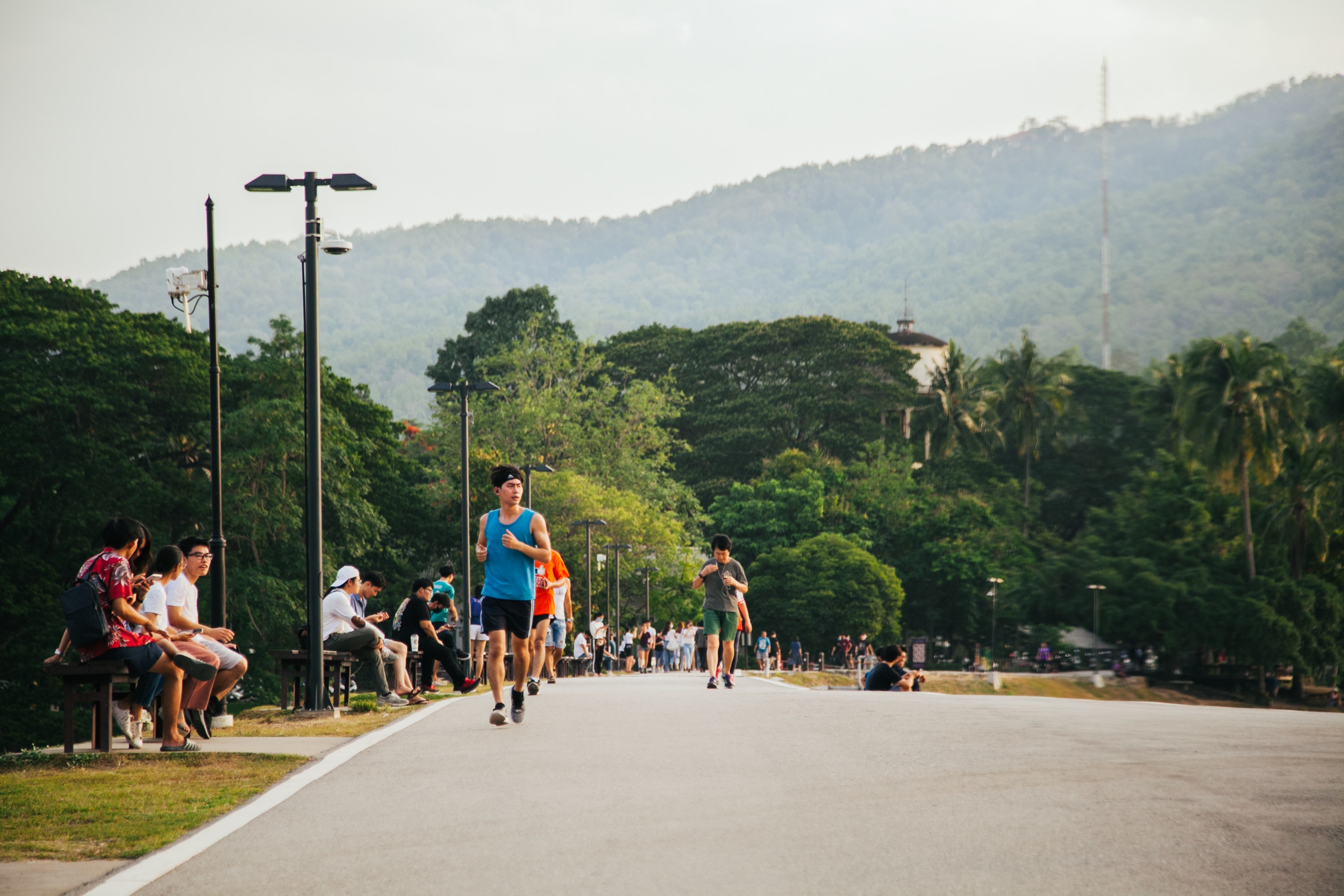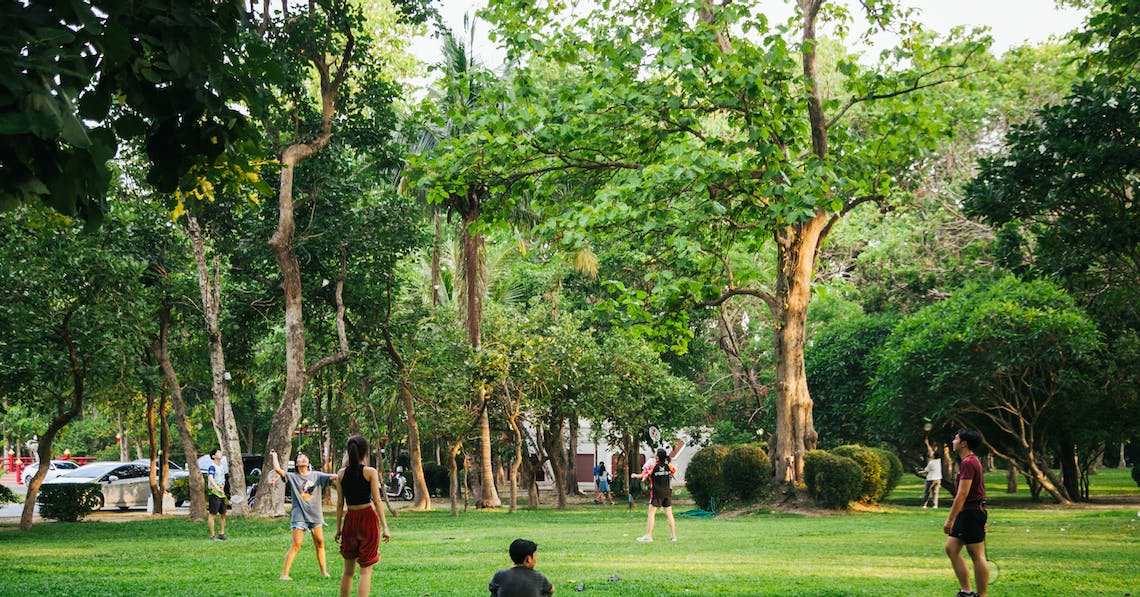On any given evening Chiang Mai University’s campus is a hive of activity; people walking, running and playing a great variety of sports.
With a population of 48,000, including students, faculty and support staff, Chiang Mai University is a town unto itself, requiring effective management to ensure good quality of living for all residents.
Health is one of the most important things in life and Chiang Mai University, as one of the five Thai universities in the ASEAN University Network (AUN), is also a member of the AUN-Health Promotion Network which has the policy of promoting universities to become Healthy Universities.
The Healthy CMU initiative was therefore formed to create a framework to support this strategy.
“Our students are many, and mostly very young, then we have the lecturers and other personnel who cross multiple demographics,” said Associate Professor Doctor Ronnaphob Uaphanthasath, Assistant to the President. “What this means is that to help them all achieve and maintain good health, we have to ensure that they are healthy in body as well as mind. Many don’t have the time to exercise, too busy working or studying; some doctors are too busy looking after other people’s health to care for their own. Others may have time, but don’t have the inclination or impetus to exercise, so our task was to find ways to help urge them to do more.”
The Healthy CMU team, comprising experts from multiple faculties and departments from science and health science to technology to sports and public health; mass communication to dentistry; pharmaceuticals to education, to many other relevant divisions, all working seamlessly to use their expertise to forward the agenda of a healthy campus. A total of 11 major organisations are spearheading this vision – Faculties of Dentistry, Education, Veterinary Pharmaceuticals, Medical Technology, Public Health, Mass Communications, the
College of Arts Media and Technology, Science and Technology Park, the Library as well as the university’s council.
So, how to ensure the people of the town are healthy and reduce their health risks which could include diabetes, heart disease, high blood pressure, cholesterol or depression? The university has set two avenues to achieve this aim – building awareness, understanding and participation and creating a data health system. There are currently nine projects launched to support this aim.
They include: The CMU i-Health platform, a10-20 minute questionnaire to offer an initial health evaluation as well as follow ups; CMU 3 Fs: Foods, Fit, Fresh which is a series of activities from food health seminars to Fit-Firm four-month weight loss programmes. There are also walking activities such as the CMU Walk Together programme; CMU Staff Health Volunteer is the development of health personnel who can offer basic health advice and evaluation. Online courses, development of health aids and guides as well as seminars are tools used; CMU Health MOOC (Massive Open Online Course) communicates through various channels focusing on information related to health (non-communicable diseases). A five-hour course offering NCDs, health promotion and rehabilitation knowledge on heart diseases and other diseases including depression found amongst working professionals; CMU Stop Staff Stress & Stress Management Clinic, promotes emotional wellbeing through stress clinics which are designed to support and offer advice to those suffering from stress; CMU Health Talk creates media to raise awareness on health for staff of the university offering tips and advice on how to care for health and wellbeing through the Healthy CMU Podcast and other channels; CMU Smart Self-Monitoring is a platform designed to allow users to self-monitor and record daily health details such as heart rates, blood pressure, oxygen in blood, etc. It also offers alerts and warnings on various health issues and monitors risks of heart diseases, diets and sleeping habits. This data will be used by the university to continue to develop its Healthy CMU platform; Health Monitoring which is an application to track COVID-19 on an open platform. COVID-19 health information is also provided; and Healthy CMU, the development of various communication channels from web sites to YouTube and LINE to promote good health for the Chiang Mai University community. Facebook: HealthyCMUOfficial, Line @healthy CMU, Youtube Healthy CMU, FM 100, Podcasts, Infographics, Webinars, Facebook Life Healthy CMU (MOR): Let’s talk with MOR as well as printed materials such as the university’s Thong Kwao publication and Chiang Mai News.


